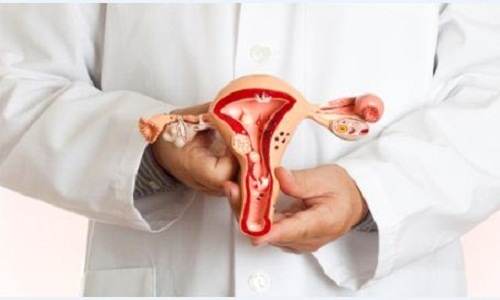Menorrhagia-heavy menstrual bleeding Causes Symptoms and Treatment
in ths article
| MENOMETRORRHAGIA TYPES |
| What Causes Menometrorrhagia? |
| Menometrorrhagia Signs and Symptoms |
| Risk factors of Menometrorrhagia |
| Complications |
| Diagnosis and Treatment of Menometrorrhagia |
The menstrual cycle can be a simple nuisance for some women and a nightmare for others. While it is a natural process that usually follows a regular schedule and produces tolerable symptoms, it can also present an irregular pattern with debilitating results. We will learn more about menometrorrhagia, its symptoms, and possible home remedies for treatment.
Menometrorrhagia is a type of menstrual abnormality that causes extreme menstrual blood loss in women of various ages.
The medical menometrorrhagia definition is excessive and prolonged uterine bleeding occurring at frequent and irregular intervals. There are two types: menorrhagia and metrorrhagia.
- MENORRHAGIA
It causes prolonged, abnormally heavy menstruation at regular intervals. - METRORRHAGIA
This form of the condition is characterized by uterine bleeding occurring at irregular intervals, usually between the anticipated dates of menstrual periods.
Menometrorrhagia causes vary and can even be inherited in a few cases such as with Von Willebrand’s Disease. We will break down the common causes and their related symptoms.
- Intrauterine Device
Any type of contraceptive device such as an IUD can cause the irregular bleeding seen with menometrorrhagia. - Obesity
An irregular and/or lengthy pattern of bleeding is just one of the many effects of carrying excessive weight. - Dilation and Curettage
Because this procedure entails collecting tissue samples from an enlarged uterus, it may cause bleeding. - Uterine Fibroids
Menometrorrhagia can start with the appearance of these benign muscular tumors. They develop in the uterus and can appear throughout the organ in severe cases. - Hormone Balance
When estrogen hormone levels rise to a higher level than progesterone, menometrorrhagia may occur. The hormone levels may change at this time depending on one’s stress levels or with the use of contraceptive pills. - Endometriosis
This sometimes painful condition may cause a form of menometrorrhagia as tissue cells grow on the outside of the uterus rather than on the inner lining of the uterus. - Blood clotting disorders
When blood cannot coagulate properly, bleeding is more prolonged. - Dysfunction of the ovaries.
If your ovaries don't release an egg (ovulate) during a menstrual cycle (anovulation), your body doesn't produce the hormone progesterone, as it would during a normal menstrual cycle. This leads to hormone imbalance and may result in menorrhagia. - Intrauterine device (IUD).
Menorrhagia is a well-known side effect of using a nonhormonal intrauterine device for birth control. Your doctor will help you plan for alternative management options. - Cancer.
Uterine cancer and cervical cancer can cause excessive menstrual bleeding, especially if you are postmenopausal or have had an abnormal Pap test in the past. - Pregnancy complications.
A single, heavy, late period may be due to a miscarriage. Another cause of heavy bleeding during pregnancy includes an unusual location of the placenta, such as a low-lying placenta or placenta previa.
Menometrorrhagia Signs and Symptoms
The symptoms of both types of the disorder are quite similar. The common signs of the condition include:
- Extremely heavy bleeding during menstruation that can interfere with the daily activities of the patient
- Bleeding between regular menstrual periods
- Less than twenty-one days or more than thirty-five days between periods
- Continuation of menstrual periods for more than 7 days
- Constant aching in and around the lower abdomen area during periods
The symptoms of anemia, due to extreme blood loss, generally include:
- Shortness of breath
- Weakness
- Tiredness
- Numbness along with a tingling sensation in toes and fingers
- Depression
- Headaches
- Poor concentration
- Decrease in body temperature
How common is menometrorrhagia?
Approximately 11.4 to 13.2 percent of women have this disorder. Menometrorrhagia is more commonly seen in woman age 40 and older, with an estimated 24 percent of woman experiencing this condition between the ages of 40 and 50.
Risk factors
Risk factors vary with age and whether you have other medical conditions that may explain your menorrhagia. In a normal cycle, the release of an egg from the ovaries stimulates the body's production of progesterone, the female hormone most responsible for keeping periods regular. When no egg is released, insufficient progesterone can cause heavy menstrual bleeding.
Menorrhagia in adolescent girls is typically due to anovulation. Adolescent girls are especially prone to anovulatory cycles in the first year after their first menstrual period (menarche).
Menorrhagia in older reproductive-age women is typically due to uterine pathology, including fibroids, polyps and adenomyosis. However, other problems, such as uterine cancer, bleeding disorders, medication side effects and liver or kidney disease must be ruled out.
Complications
Excessive menstrual bleeding can have a significant impact on your health and quality of life. The significant loss of blood can lead to anemia. Anemia is a condition in which your blood is lacking oxygen-carrying red blood cells. Without oxygen-rich blood, you may feel weak and tired.
Excessive menstrual bleeding can also be a symptom of some reproductive cancers and conditions that affect fertility. It’s important to get medical attention when you experience any excessive bleeding.
Severe pain. Along with heavy menstrual bleeding, you might have painful menstrual cramps (dysmenorrhea). Sometimes the cramps associated with menorrhagia are severe enough to require medical evaluation.
Diagnosis and Treatment of Menometrorrhagia
The extent of the bleeding and how long it lasts are key indicators for a medical diagnosis. With a physical examination, doctors may take samples directly from the uterus to ensure there are no cancerous growths. Blood samples will determine hormone levels as well.
Menometrorrhagia treatment methods vary, and there are both medical and non-traditional home remedies that may treat the condition. Pain relievers such as non-steroidal anti-inflammatory drugs (NSAIDs) work to slow and decrease the amount of blood flow. For cases of excessive blood loss, a blood transfusion may be a necessary part of treatment. For more serious cases, there are surgical procedures such as a hysterectomy or endometrial ablation to help alleviate symptoms and treat the bleeding.
Try using some of the following remedies for more natural treatments.
- Banana flower
This remedy reportedly reduces the blood flow as it increases the levels of progesterone. Cook a handful of banana flowers and add curd before eating. - Mustard seeds
These may be excellent for curbing extreme symptoms of menometrorrhagia when ingested two to three days before the expected start of menstrual cycle. Mix seeds in a glass of milk and drink. - Coriander seeds
You could also alleviate symptoms by taking these seeds during the menstrual cycle. Boil seeds and drink solution once cooled. - Pomegranate leaves
To help control the menometrorrhagia symptoms, the leaves of pomegranates and seven rice grains may be effective. Mix to create a paste and ingest twice each day for a month. -
Parsley leaves
Boil parsley leaves in water for a drink to have during the first three days of the menstrual cycle. Take three glasses each day to treat some of the symptoms.Menometrorrhagia affects nearly one-quarter of women between 14 and 45 years of age. This condition can present symptoms similar to regular menstrual cycles but at a heightened level. Causes range from genetics to hormone balance and underlying health conditions. It can lead to pain and embarrassment for some as the ailment can last for very long periods of time. Mild cases may be treated with simple home remedies while more serious cases may involve blood transfusions or surgery.



